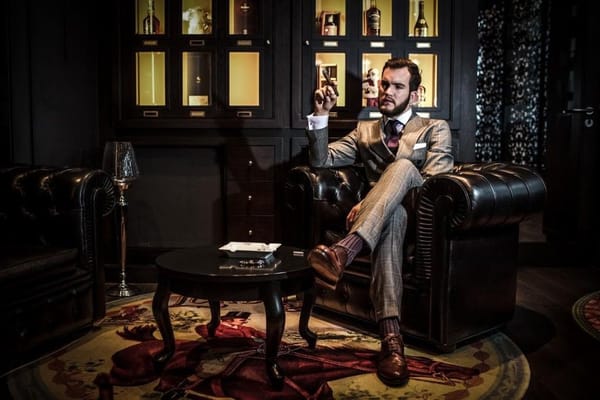Compulsive Blending
I seem to have an irrational compulsion to blend in, to appear to be a native wherever I go. I seem to have this most strongly in foreign cities and countries. I had it when I lived in Schiedam (in the west of The Netherlands, a foreign place, since I’m really from the north), I had it in Dublin, I have it in Poland and here in the US as well.
For the past few weeks I’ve been staying in Atlanta, for work. It’s relatively easy to blend in here, a considerable part of the population is of foreign descent and you hear a lot of foreign accents around — whatever “foreign” may mean in the US.
One source of potential slip-up is the exchange of money. In stores I don’t pay with a bank card, for me it would be excessively expensive to do so. As a result, I pay cash everywhere.
Part of my irrational need to blend in is to definitely not be a nuisance to anybody. People who are a nuisance attract attention, attention gives opportunity to notice that something’s off. So, in stores I always try to find everything I need by myself, and pay as routinely as possible — like I’ve been shopping there for years.
Paying cash doesn’t really help there. Since I don’t spend a lot of time in the US, I’m not very familiar with the coins. It’s not uncommon that I have to pay unfortunate amounts like $10.05. I have coins, but searching through them would take a noticeably long time. One time I naively attempted this, but US coins don’t clearly advertising their worth, they obscure by using texts like “dime”. Consequently, I have to recall what a dime is worth — 5, 10, 25 cents? This takes too much time, and getting it wrong would definitely raise an eyebrow — so I pay $11 and receive a handful of coins in return.
After about a week or two, my wallet gets so heavy and full of coins that it no longer fits into my jacket pocket. When I stay in San Francisco there’s always a homeless person to be friendly to — not so much in the area around me in Atlanta.
Today I decided to give up and just empty my wallet, as you can see above. At some point I’ll either study the value of each coin closely so I can quickly whip out the right amount, or I’ll just find a person in need.
As you may imagine, blending in in Poland isn’t any easier.
It’s about a year and a half ago that me and my wife moved there, and I don’t speak the language very well. Most foreigners make no effort. They don’t care about their foreign-ness, and don’t even attempt to keep up appearances. They just speak English to the cashier in the store. Sometimes that works out fine. Sometimes they get confused looks.
I don’t speak English in stores. I tend to keep quiet, hoping that nobody asks me questions that I don’t understand, or would take take more than a few words to answer — enough words to make it painfully apparent that I’m not from around here. As I answer, I carefully watch for expressions on the cashiers face — trying to detect if she figured it out.
On occasion I have absolutely no idea what the cashier is asking me. My usual, albeit slightly risky strategy is to either nod or shake my head, depending on the context. Usually that has the desired effect of the exchange ending, sometimes it turns out my bank card is rejected and no matter how much I nod, they won’t let me take my stuff home.
I do have my victories. My most satisfying visit to a store involves a few minor interactions. When paying, the cashier asks me if I have this and this amount of groszy in coins. I understand the question, I quickly collect them and proudly hand them over. All this with the minimal amount of words, because every word I speak is a potential tell. I thank and say good bye. As I walk out the store, I think to myself: maybe it worked.
Luckily, my wife is a great source of support in my compulsion:
“Oh honey — you don’t look Polish at all, people know the instant you walk in.”

